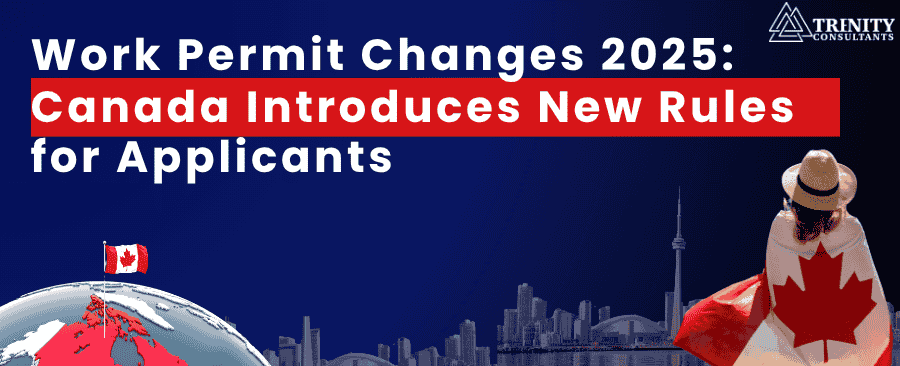
New Rules for Work Permit in Canada 2025: Everything You Need to Prepare For
If you’re planning to live and work in Canada soon, the new rules for work permit in Canada 2025 are something you simply cannot ignore. These changes are expected to go into effect by July 2025, and their direct effects are on the process of hiring, treating and supporting temporary foreign workers nationwide. As a competent professional, or a seasonal worker, it is imperative that you read up on these updates before you start the application process.
This is where many people turn to trusted experts like Trenity Immigration Consultants to simplify the journey and assess your eligibility to immigrate to Canada based on the latest government guidelines.
A Quick Overview of the New Rules for Work Permit in Canada 2025
Uncovered through internal documentation from Employment and Social Development Canada (ESDC), the new rules for work permit focus on the Temporary Foreign Worker (TFW) Program. Workers mobility, wage structure, and housing safety, as well as duties of the employers, are also some of the main areas that the reforms focus on. The changes will be felt by more than 100,000 migrant workers and thousands of employers particularly in agriculture and seafood processing.
What is Changing? 6 Major Reforms That You should be Aware 0f
Sector-Specific Permits:
The 2-year permits made available to industries such as agriculture and fish processing will permit the workers to switch employers in the same industry making them flexible, but only when another job is available.
Employers Wage Deduction:
Now, the employers will have a chance to deduct such things as housing, utilities, and transport expenses out of the wages. This will act as cost-sharing but at the same time it may take away a considerable amount of take-home salaries.
Regulation Changes in Housing:
Indoor temperature control regulations on the housing of workers are likely to be abandoned-a subject of health and comfort considerations, particularly in summer and winter extremes.
More relaxed Transport regulations:
It will also allow employers greater flexibility in organizing the transport to work. But unreliable or unsafe transportation may prove to be a greater problem in rural locations.
Healthcare Responsibilities:
The phraseology of employer-paid healthcare is a grey area and may restrict the ability to access healthcare-particularly in underprivileged or rural communities.
Accelerated LMIA Process:
As a measure to reduce red tape, government is trying to make the LMIA process easier and quicker so that the employers can hire foreign workers.
What Experts Say
Although some of the reforms which continues to receive praises include sector specific permits as it offers more flexibility, critics note that the reforms are insufficient. It is widely assumed that in the absence of clear avenues that are well defined, foreign workers stand a risk of exploitation. Advocacy groups want open work permits and more protections to workers so they are treated fairly and have long-term security.
Reside in the UAE? This is What You Need to Know
If you’re applying for a Canadian work permit in 2025 from Abu Dhabi, UAE, it’s important to understand how these new rules could impact your journey. The documents that you will have to provide, whether you can be eligible or not, and the nature of the employers you are depending on can alter. That’s why connecting with professionals who offer reliable Canadian Immigration and Visa Services in Abu Dhabi, UAE can make all the difference. Let Trenity Immigration Consultants guide you step-by-step so you can confidently immigrate to Canada under the new rules.
Share:































